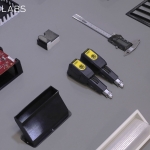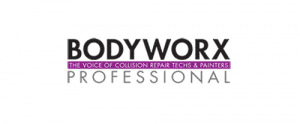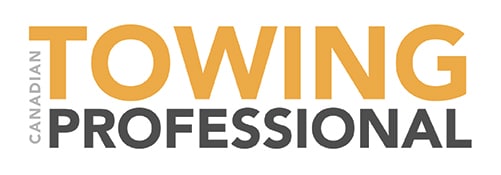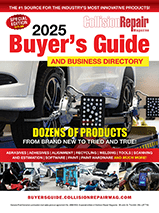Company is working with Jabil, KIMYA, Mitsubishi Chemical, Polymaker, and Other Leading Filament Suppliers to Add Engineering-Grade Materials to the Platform;
New MakerBot LABS Experimental Extruder for METHOD Provides Users and Filament Partners Advanced Customization Options for New Materials
FRANKFURT, Germany–(BUSINESS WIRE)–MakerBot, a global leader in 3D printing and subsidiary of Stratasys (Nasdaq: SSYS), today announces the METHOD Materials Development Program and MakerBot LABS Experimental Extruder for METHOD to enable 3D printing with a wide range of engineering-grade materials from leading filament suppliers. A growing list of partners starting with Jabil, KIMYA, Polymaker, and Mitsubishi Chemical are working to qualify filament for use with the MakerBot METHOD platform.
“The MakerBot METHOD platform brings features to engineers that were previously only available on much more expensive industrial 3D printers. These features enable METHOD 3D printers to achieve industrial reliability, precision, and engineering performance by tightly controlling the entire printing environment, from the heated chamber to the sealed filament bays and performance extruders,” said Nadav Goshen, CEO of MakerBot. “We also recognize that many of our customers want a way to experiment with different materials to explore new 3D printing applications. With the MakerBot LABS Experimental Extruder, we are opening more advanced settings for customization, allowing both users and our development partners to print and qualify a wider range of engineering-grade materials on the METHOD platform.”
MakerBot is currently working with Jabil, KIMYA, Mitsubishi Chemical, and Polymaker to qualify the following materials for MakerBot LABS for METHOD:
- Jabil PETg ESD: Jabil Engineered Materials PETg ESD is an easy processing, Electrostatic Dissipative (ESD) product for printing parts that meet sensitive electronics and could be damaged by electrostatic discharge.
- KIMYA ABS CARBON: An ABS composite material with 30% chopped carbon fiber for improved stiffness and compression strength, as well as lower weight than regular ABS.
- KIMYA ABS ESD: An ABS-based ESD material filled with carbon nanotubes that is ideal for applications that require protection against electrostatic discharge, such as manufacturing fixtures and electronics enclosures.
- KIMYA PETG CARBON: PETG reinforced with carbon fibers for excellent stiffness and increased tensile strength over regular PETG.
- Mitsubishi Chemical DURABIO™: DURABIO is an engineering, bio-based, BPA free resin. It combines PMMA’s transparency with a higher chemical and scratch resistance compared to polycarbonate (PC). The core applications for the material are in automotive, housing, interior and exterior décor.
- Polymaker PolyMax™ PC: An engineered PC filament combining excellent strength, toughness, heat resistance, and printing quality.
- Polymaker PolyMax™ PC-FR: Flame retardant PC filament (UL94V-0/1.5 mm) displaying excellent toughness, strength, and heat resistance. It opens new applications in the automotive, railway, and aerospace industries.
The METHOD manufacturing workstation includes industrial 3D printing features, such as the Circulating Heated Chamber, Dual Performance Extruders, Dry-Sealed Material Bays, and industrial SR-30 soluble supports, which make it ideal for printing with advanced, engineering-grade materials and partners can now leverage these capabilities to print advanced materials on the platform.
MakerBot has modified the Experimental Extruder hot end to make it easier to change the nozzle assembly and plans to offer additional nozzle configurations in the future. The extruder gives users advanced customization options for new materials, including interchangeable nozzle assemblies, and expanded print settings in MakerBot’s print preparation software, MakerBot Print.
The MakerBot LABS Experimental Extruder is expected to launch in an open beta program in December 2019. MakerBot will give away a limited number of free MakerBot LABS Experimental Extruders to existing and new METHOD customers, while supplies last. Customers can sign up for news about the MakerBot LABS Experimental Extruder for METHOD and the open beta program here. The MakerBot LABS Experimental Extruder is expected to go on sale in Q1 2020. The extruders will be available for both METHOD and METHOD X.
New materials for the MakerBot LABS Experimental Extruder can be purchased directly from MakerBot’s partners. Companies interested in joining the MakerBot Materials Development Program can contact MakerBot at labs@makerbot.com.
For more information, visit www.makerbot.com/3d-printers/materials/makerbot-labs/.
MakerBot LABS for METHOD will be showcased at Formnext, one of Europe’s largest additive manufacturing conferences, at the MakerBot booth F99 in Hall 12.1, November 19-22, 2019 in Frankfurt, Germany.
The MakerBot METHOD platform, which includes the METHOD and METHOD X 3D printers, is designed to enable engineers to achieve dimensionally-accurate, repeatable, and consistent parts for rapid production. Powered by Stratasys®, METHOD combines industrial features and capabilities with MakerBot’s accessibility and ease of use to provide engineers with an industrial 3D printer at a disruptive price point. METHOD is able to print with a variety of materials, including ABS, ASA, PETG, Nylon, and more.
MakerBot, METHOD, METHOD X, and MakerBot Print are registered trademarks or trademarks of MakerBot Industries, LLC in the United States and/or other countries. SR-30 is a trademark of Stratasys, Inc. All other trademarks are the property of their respective owners.
— Partner Quotes —
“We work closely with OEMs to develop new materials that address key challenges for industrial customers. Shifting from prototyping to production of finished products with additive manufacturing is one of the core areas we focus on, and it requires a printer that can produce high quality parts with industrial materials. We have been very impressed with the print quality of the METHOD X. The heated chamber and the SR-30 support material are ideal for printing complex end-use parts with KIMYA ABS-based materials,” said Pierre-Antoine Pluvinage, Business Development Director, KIMYA – Additive Manufacturing by ARMOR.
“PolyMax™ PC-FR allows industrial customers to print end-use parts that comply with existing fire rating standards. With its heated chamber, METHOD bridges the gap between industrial materials and production-ready printed parts as it offers consistent results with engineering materials,” said Dr. Xiaofan Luo, President, Polymaker
“Jabil is excited about the opportunity to work with MakerBot to provide third-party materials for the METHOD Platform. The Materials Development Program should provide MakerBot customers with access to a broader range of materials and, ultimately, unlock more applications for additive manufacturing,” said Matt Torosian, Director of Product Management Additive Manufacturing, Jabil.
“Mitsubishi Chemical is constantly working on creating new engineering materials solutions for industrial 3D printing and very proud to cooperate with MakerBot, a leading high-end printer manufacturer,” said Dick C. Hoogerdijk, Director, Marketing and New Business Development, Mitsubishi Chemical.
About MakerBot
MakerBot, a subsidiary of Stratasys Ltd. (Nasdaq: SSYS), is a global leader in the 3D printing industry. The company helps create the innovators of today and the businesses and learning institutions of the future. Founded in 2009 in Brooklyn, NY, MakerBot strives to redefine the standards for 3D printing for reliability, accessibility, precision, and ease-of-use. Through this dedication, MakerBot has one of the largest install bases in the industry and also runs Thingiverse, the largest 3D printing community in the world.
We believe there’s an innovator in everyone, so we make the 3D printing tools that make your ideas matter. Discover innovation with MakerBot 3D printing.
To learn more about MakerBot, visit makerbot.com.
Note Regarding Forward-Looking Statement
The statements in this press release relating to Stratasys’ and/or MakerBot’s beliefs regarding the benefits consumers will experience from the MakerBot Experimental Extruder and its features and Stratasys’ and MakerBot’s expectations on timing of availability of the MakerBot MakerBot Experimental Extruder are forward-looking statements reflecting management’s current expectations and beliefs. These forward-looking statements are based on current information that is, by its nature, subject to rapid and even abrupt change. Due to risks and uncertainties associated with Stratasys’ and MakerBot’s businesses, actual results could differ materially from those projected or implied by these forward-looking statements. These risks and uncertainties include, but are not limited to: the risk that consumers will not perceive the benefits of the MakerBot Experimental Extruder and its features to be the same as Stratasys and MakerBot do; the risk that unforeseen technical or other difficulties will delay the availability of the MakerBot Experimental Extruder; and other risk factors set forth under the caption “Risk Factors” in Stratasys’ most recent Annual Report on Form 20-F, filed with the Securities and Exchange Commission (SEC) on March 7, 2019. Stratasys (or MakerBot) is under no obligation (and expressly disclaims any obligation) to update or alter its forward-looking statements, whether as a result of new information, future events or otherwise, except as otherwise required by the rules and regulations of the SEC.
Contacts
Bennie Sham
PR Manager
MakerBot
bennie.sham@makerbot.com






















